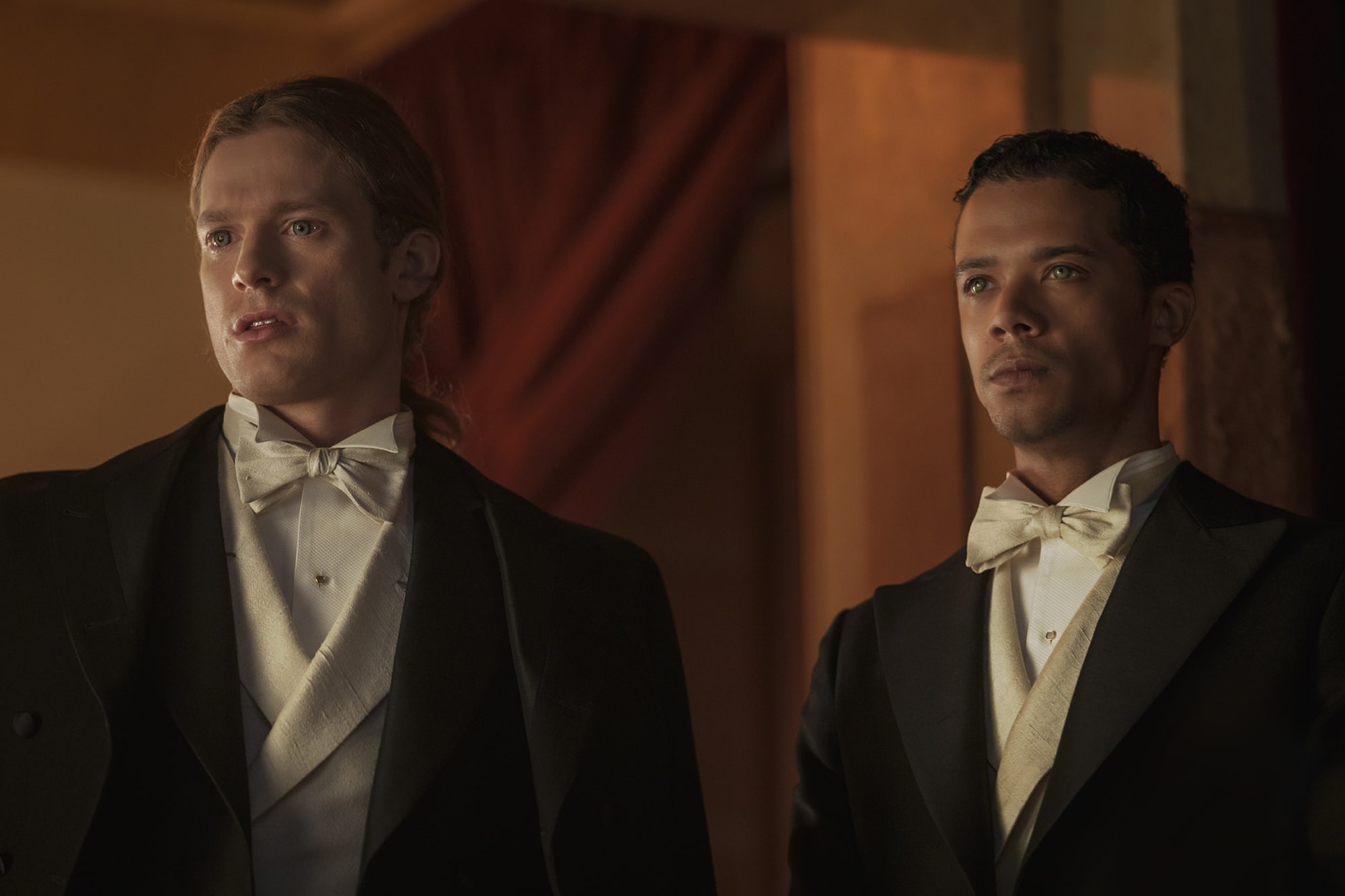How ‘Interview With the Vampire’s Second Episode Perfectly Illustrates Intersectionality

It’s natural to have differing takes on AMC’s Interview With the Vampire series so far. There’s a lot of issues and topics being explored, and when you exist in several marginalized groups, it’s complicated, just like it’s complicated for Louis (Jacob Anderson), who now exists as a vampire—with Lestat (Sam Reid) guiding him in a way that’s visibly frustrating for Louis, calling him fledgling throughout the episode (which Louis rightfully chastises him for).
Episode 2 is certainly about the navigating of Louis and Lestat’s relationship. But as this story is told primarily through Louis’ eyes, we’re sitting with his perspective, which is absolutely valid and in some ways is relatable (aside from the vampirism) if you also happen to be a Black queer person. Interestingly enough, Interview With the Vampire hasn’t dropped its exploration of social issues. We’re not being forced to pretend that Louis’ experiences in the world mimic Lestat. Just because they’re both vampires doesn’t mean they walk the world the same.
“But I wasn’t a man anymore, I was something else. I had powers now and decades of rage to process.”
– Louis, Interview with the Vampire (AMC)
When Louis kills a man who flat out disrespects him (the micro-aggressions are hard to ignore), he has truly had enough. After spending his whole life dealing with racism and feeling low, he finally had the power to do something about it. He’s no longer constrained by societal rules of when and why to kill somebody. Sound wild to say? Remember what you’re watching. The reaction that Lestat has to Louis’ decision to kill a man he was going to do business with is very telling. How could a rich white vampire understand the experiences of a Black gay man? Answer: He can’t. Thus, bringing up the concept of intersectionality.
For those who don’t understand intersectionality (thank Kimberlé Crenshaw for this term), the official definition is as follows:
“Intersectionality is an analytical framework for understanding how aspects of a person’s social and political identities combine to create different modes of discrimination and privilege. Intersectionality identifies multiple factors of advantage and disadvantage.”
– Wikipedia (source), definition coined by Kimberle Crenshaw
At that point in time, Louis would certainly not have the words to describe what’s going on. But as a viewer/individual who does exist in both marginalized groups, it immediately hit me. His identity as a vampire does clash with his social identities. When Lestat isn’t being visible in his affections towards Louis or vamping out, he moves much more freely. His whiteness awards him that natural privilege in a world that wasn’t built for Louis. Their relationship slightly suffers with Lestat’s slow understanding of life in America for a Black man, especially in the 1900s.
(featured image: AMC)
Have a tip we should know? [email protected]